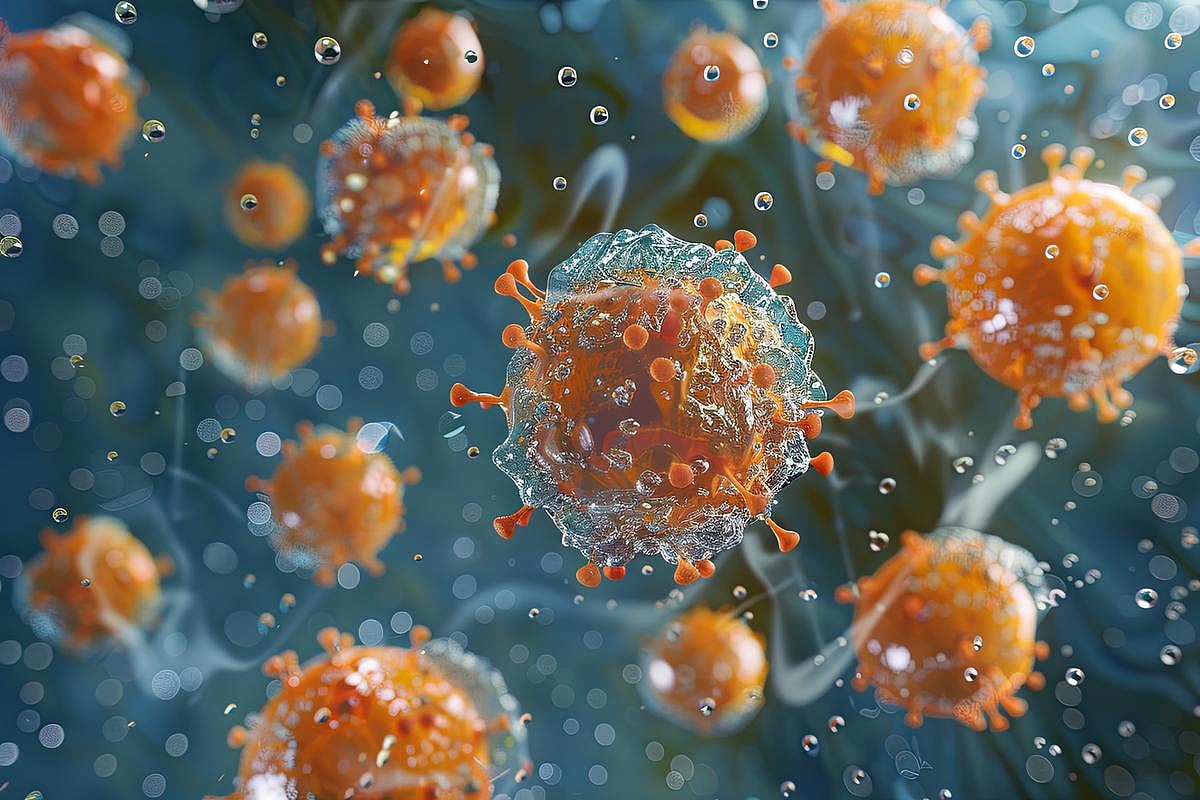Get Healthy!

- Ernie Mundell
- Posted November 20, 2024
Human Cell Atlas Will Be 'Google Maps' for Health Research
Scientists from around the world are making headway in compiling a Human Cell Atlas -- a deep dive into the myriad types of cells in the body and their disparate roles in health and disease.
The atlas is not yet complete, but 40 different scientific papers on cell research, published Nov. 20 in the journal Nature, brings the goal much closer.
"This landmark collection of papers from the international Human Cell Atlas community underscores the tremendous progress toward mapping every single kind of human cell and how they change as we grow up and age," explained Dr. Jeremy Farrar, chief scientist at the World Health Organization (WHO). "The insights emerging from these discoveries are already reshaping our understanding of health and disease, paving the way for transformative health benefits that will impact lives worldwide."
There are many individual types of cells that work in partnerships to spur human development and health and, sometimes, disease.
The Human Cell Atlas (HCA) seeks to better understand these cells and their relationships. Over 3,600 scientists from 100 countries worldwide have been working together to catalog more than 100 million cells obtained from a diverse group of more than 10,000 people.
Any first draft of the HCA will contain data on billions of cells from all organs and tissues.
This new batch of HCA-related research papers focuses on three key aspects of the research:
mapping cells from developed adult tissues and organs
mapping cells from tissues and organs still in development
exploring new means of analyzing these cells, including the use of AI
According to a news release from Britain's Wellcome Trust Sanger Institute, the new papers are already providing insight into "how the placenta and skeleton form, changes during brain maturation, new gut and vascular cell states, lung responses to COVID-19, [and] investigating how genetic variation impacts on disease."
A partial list of some of these discoveries includes:
a study pinpointing a cell in the human gut that could play a big role in gut inflammation
the first cellular 'map' of how the human skeleton develops, with insights into various skeletal conditions, including the origins of arthritis
an atlas of cells in the first trimester placenta, with insights into how the placenta nourishes and shields the developing embryo
new studies into how revolutionary technologies such as AI can speed and deepen HCA research
The HCA papers also include research into making sure a diverse range of human subjects are included in the groundbreaking effort.
"A key priority for HCA is to ensure a representation of the vast range of human diversity; genetic, cultural and geographical," said Partha Majumder of the John C. Martin Centre for Liver Research and Innovation, in India.
Tissue and organ samples obtained from people worldwide, including Asia and Africa, "demonstrate the remarkable power of large-scale international scientific collaboration," said Majumber, who is co-chair of the HCA Equity Working Group.
"The Human Cell Atlas is a global initiative that is already transforming our understanding of human health," said Sarah Teichmann, a founding co-chair of the Human Cell Atlas who is now at the Cambridge Stem Cell Institute in the U.K.
"By creating a comprehensive reference map of the healthy human body -- a kind of ‘Google Maps’ for cell biology -- it establishes a benchmark for detecting and understanding the changes that underlie health and disease. This new level of insight into the specific genes, mechanisms and cell types within tissues is laying the groundwork for more precise diagnostics, innovative drug discovery and advanced regenerative medicine approaches."
The HCA is funded, in part, by the Chan Zuckerberg Initiative, Wellcome Trust, U.S. National Institutes of Health and the National Key R&D Program of China.
More information
There's more on how cells work at the U.S. National Cancer Institute.
SOURCE: Wellcome Trust Sanger Institute, news release, Nov. 20, 2024







